-
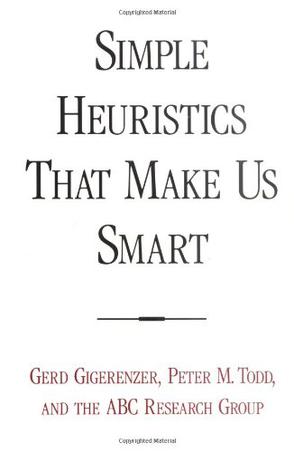
Simple Heuristics That Make Us Smart
Simple Heuristics That Make Us Smart invites readers to embark on a new journey into a land of rationality that differs from the familiar territory of cognitive science and economics. Traditional views of rationality tend to see decision makers as possessing superhuman powers of reason, limitless knowledge, and all of eternity in which to ponder choices. To understand decisions in the real world, we need a different, more psychologically plausible notion of rationality, and this book provides it. It is about fast and frugal heuristics--simple rules for making decisions when time is pressing and deep thought an unaffordable luxury. These heuristics can enable both living organisms and artificial systems to make smart choices, classifications, and predictions by employing bounded rationality. But when and how can such fast and frugal heuristics work? Can judgments based simply on one good reason be as accurate as those based on many reasons? Could less knowledge even lead to systematically better predictions than more knowledge? Simple Heuristics explores these questions, developing computational models of heuristics and testing them through experiments and analyses. It shows how fast and frugal heuristics can produce adaptive decisions in situations as varied as choosing a mate, dividing resources among offspring, predicting high school drop out rates, and playing the stock market. As an interdisciplinary work that is both useful and engaging, this book will appeal to a wide audience. It is ideal for researchers in cognitive psychology, evolutionary psychology, and cognitive science, as well as in economics and artificial intelligence. It will also inspire anyone interested in simply making good decisions. -
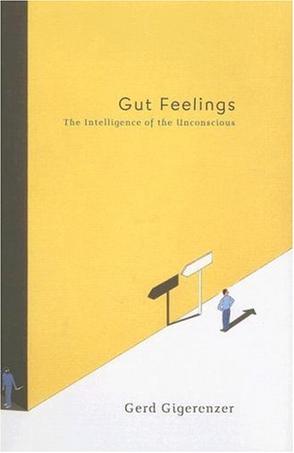
Gut Feelings
Why is split second decision-making superior to deliberation? Gut Feelings delivers the science behind Malcolm Gladwell??s Blink Reflection and reason are overrated, according to renowned psychologist Gerd Gigerenzer. Much better qualified to help us make decisions is the cognitive, emotional, and social repertoire we call intuition??a suite of gut feelings that have evolved over the millennia specifically for making decisions. ??Gladwell drew heavily on Gigerenzer??s research. But Gigerenzer goes a step further by explaining just why our gut instincts are so often right. Intuition, it seems, is not some sort of mystical chemical reaction but a neurologically based behavior that evolved to ensure that we humans respond quickly when faced with a dilemma?? (BusinessWeek). -
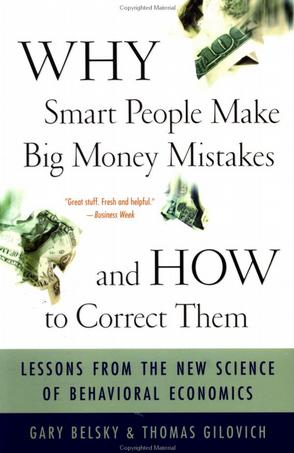
Why Smart People Make Big Money Mistakes and How to Correct Them
Offers financial advice. -
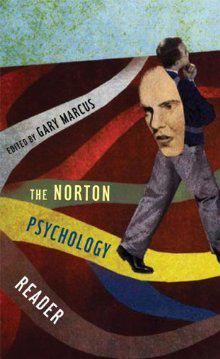
The Norton Psychology Reader
If you’ve ever wondered about the mind and behavior, the Norton Psychology Reader is the perfect place to start. From the biological basis of emotion to the psychological basis of culture, from the nature of nurture to the nature of intelligence, with selections by leading scientists with a knack for writing—including Steven Pinker, Joseph Ledoux, Antonio Damasio, Oliver Sacks, and Robert Sapolsky—and top-notch journalists with an uncanny sense for psychology—including Natalie Angier, Daniel Goleman, and Sylvia Nasar—the Norton Psychology Reader presents the best that psychology has to offer. Edited by noted New York University psychologist Gary Marcus, the Norton Psychology Reader is an unparalleled guided tour through the modern science of the human mind and a perfect companion to any introductory psychology course, filled with insights completely accessible to the interested lay reader. -
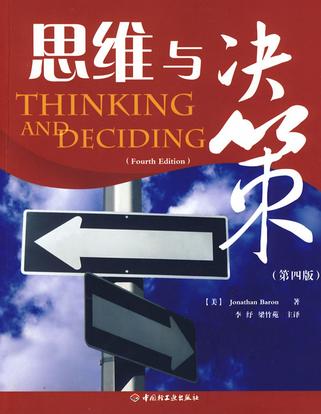
思维与决策(第四版)
决策是对行为的选择——选择做什么或者不做什么。是人类的高级认知活动之一。决策科学是一个多学科交叉领域.已有百年的历史。涉及心理学、经济学、计算机科学、法律、医学、政治学、哲学等学科,并对会计、金融、市场营销、组织管理等应用领域产生了重要和深远的影响。人类如何进行思维、决策和判断,如何解决问题和制定政策,诺贝尔奖得主赫伯特·西蒙(Herbert A. Simon)、丹尼尔·卡尼曼(Daniel Kahneman)等心理学家们对此方面的研究做出了卓越的贡献。 《思维与决策(第四版)》作者Jonathan Baron教授是美国判断与决策学会(Society for Judgment and Decision Making)主席,他在书中全面和专业地介绍了思维与决策领域的理论、研究、应用的现状,让读者窥见该领域的发展全貌,其独到之处在于:从学科形成发展的角度梳理了思维、判断与决策领域研究的脉络较为充分和系统地体现了思维与决策领域中的核心概念,及其在多个相关学科中的实际应用;从规范性、描述性和指导性三个层面分析决策问题的思路贯穿全书,密切联系实际。因此,《思维与决策(第四版)》不仅仅是对思维与决策研究的发展介绍_蔓是改善自己的思维与决策的实用指南。希望有心的读者读完此书,能明白自己这辈子是遵循何种规则来做出林林总总的决策。 -
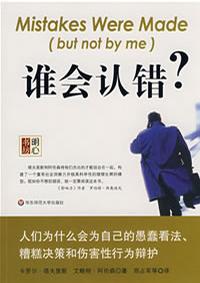
谁会认错
《谁会认错?》这本极具洞察力和吸引力的著作,著名社会心理学家卡罗尔·塔夫里斯和艾略特·阿伦森深入探讨了人类大脑是如何进行自我辩护的。每当犯下错误的时候,我们一定会消除那些动摇自我价值感的认知失调。我们会任凭自己的头脑虚构出免除责任的种种理由,不断强化自己聪明、有德行、不会犯错的信念,而这种信念却恰恰令我们变得愚蠢、没有德行、错误不断。 当事情陷入僵局的时候,人们为什么会推卸责任?为什么会有如此之多的公众人物在事情搞砸时不能坦然面对?为什么难以计数的夫妻总是为孰是孰非争来争去?为什么我们总是看到他人的虚伪,而不去反顾自身?难道说我们都是骗子吗?或者说,我们都对自己所说出的话信以为真吗?